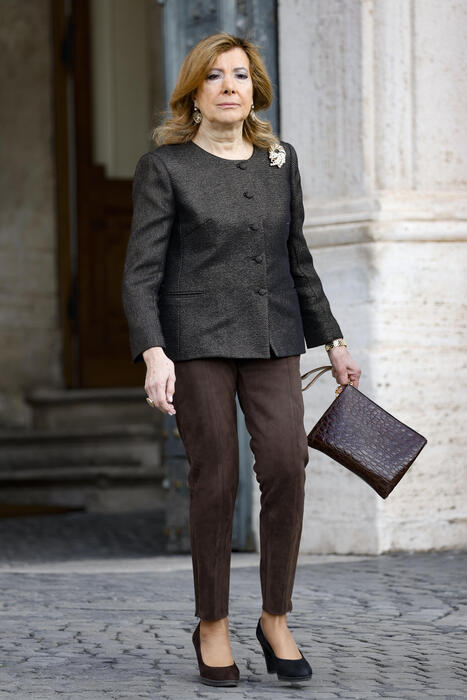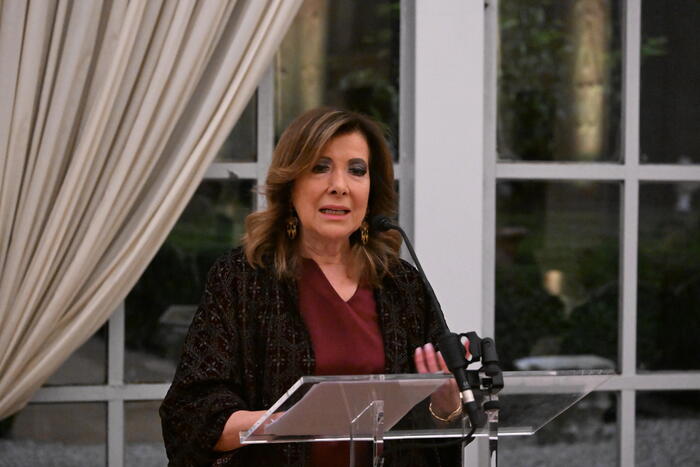Italian politics has made justice the main workhorse of the last 30 years. The debate on the power it entails, the speed of the processes, the harshness of the penalties and the control it exercises over the political class and corruption have given birth to the main phenomena that have emerged in recent decades. From La Liga Norte to Silvio Berlusconi, through the 5 Star Movement. Italy has since been divided into two somewhat absurd categories: the justicialists and the warrantors. And no one has ever managed to get all parties to agree on how to tackle the issue. The Executive of Mario Draghi, however, is preparing to begin a major reform that will touch on crucial issues such as the prescription of crimes,the radical reduction of prison sentences or the excessive power of the Superior Council of the Magistracy (CSM).
The reform is a periodic requirement of the European Union in the last decade and that has now become unavoidable as a condition for the delivery of the Recovery Plan funds.
In Brussels, the times of justice are of particular concern.
Appeals in the second degree take an average of 851 days (the European average is 155) and backlogs, according to 2019 data, were 260,946.
For the appeal in second degree, according to the data of the president of the Italian Supreme Court (third degree), Pietro Curzio, the times are lengthened to 1,038 days.
All this is intended by the Minister of Justice, Marta Cartabia, should be streamlined with more means and simpler processes.
But, above all, with the key element that explains the politics of the last 30 years: the debate on the prescription.
More information
Draghi's pragmatism appeases Italian politics
Italy and Spain put their alliance to the test in the Draghi era
The reform now foresees that the times in which a defendant will be "improper" will be shorter.
That is the banner of the so-called guarantors and what politicians such as Berlusconi have always asked in an interested way, who managed to escape from their accusations by delaying the trial times.
The so-called justicialistas, represented by the M5S, but also by a large group of anti-mafia magistrates, wish that the majority of crimes never reached that prescription and promise to wage war in Parliament to modify that point.
The battle, however, started much earlier.
On February 17, 1992, the magistrate Antonio Di Pietro requested an arrest warrant for Mario Chiesa, an important businessman and members of the Italian Socialist Party. Thus began an enormous judicial process against the corruption of the political class that became known as Mani pulite and that dismantled the entire power system of the old Christian Democrats and opened the box of thunder for all the political phenomena that would come later. The problem is that the magistracy certified its enormous power and independence and became the axis on which all the political battles of the following decades were articulated. Gherardo Colombo was the magistrate who instructed that case. “The reform will be positive if everything that it foresees can be executed. If so,criminal proceedings will be faster and that is a technical aspect that also has political consequences, "he says.
Italy is a country founded on the primacy of justice. Unlike other states such as France or Spain, politics has always had to account for this fact. It has to do with the old inertia of the Cold War of giving little power to the parliament, and a lot to the parties and the public administration. But the weight of the judiciary remains enormous and has also been maintained thanks to the dignity gained after years of fighting terrorism or the mafia. A period in which 21 magistrates were assassinated and the credibility of the policy plummeted. In fact, few presidents of the Council of Ministers have escaped accusations: Prodi, Renzi, Bettino Craxi, Berlusconi or Giulio Andreotti.
Colombo believes that the most important part of the reform, however, has to do with reducing the use of prison as a punitive instrument. “The penalty must be re-education and not revenge. The reform goes along this line. It notably reduces the resource of the jail. And if it is truly carried out, the jail will be more residual ”. An idea shared by the former magistrate and professor Luciano Violante. “The most important thing is that the relationship between the citizen and the State changes. Until now the state in the criminal process fixed how long he should be in jail and separated from society. Here the vision is modified: jail is the last option. And the judge's activity is destined to rebuild the relationship between the convicted person and society. This process is the same as that applied to minors and will now be done in criminal justice for adults ”,aim.
Many magistrates, however, believe that the speed with which they will now prescribe some crimes, especially financial and corruption, will be a drain for criminals. Roberto Scarpinato, historical judge of anti-mafia processes such as that of Piersanti Mattarella (president of Sicily assassinated by Cosa Nostra in 1980), that of General Carlo Alberto Dalla Chiesa (prefect of Palermo also assassinated by Cosa Nostra in 1982) or that of the alleged negotiation between the state and the mafia, insists that "the problem of the reform of the criminal process in Italy is at the center of a political disagreement that lasts 30 years." “It is such a heated debate that at times it has almost caused a government crisis. And that does not happen in any other country. To understand it, it must be remembered that in Italy the Prosecutor's Office is independent from political power.And that has allowed the Italian magistracy to hold proceedings against many exponents of the
Italian
establishment
: senators, heads of secret services, prime ministers ... Hence the violent reaction of a part of the ruling class against the magistracy and the reforms they have introduced that make criminal proceedings more difficult.
They have lengthened it and, at the same time, reduced the statute of limitations for crimes.
And that is why so many crimes in Italy are extinguished, especially those of corruption and the economy ”, he criticizes.
The solution?
Scarpinato has no doubts.
Eliminate all the reforms that have made the criminal process more cumbersome, make it faster, reserve the accusatory rite for serious crimes.
"Look, this is not a legal technical problem, but a political problem."
A problem that explains 30 years of history.

/cloudfront-eu-central-1.images.arcpublishing.com/prisa/6YOP4Y7VXE6KENZYBKED6ZKORE.jpg)







